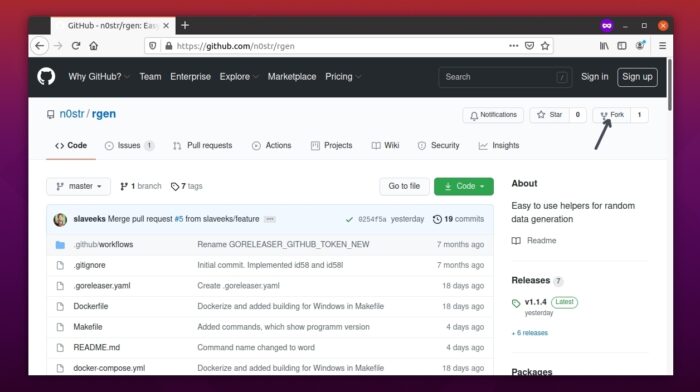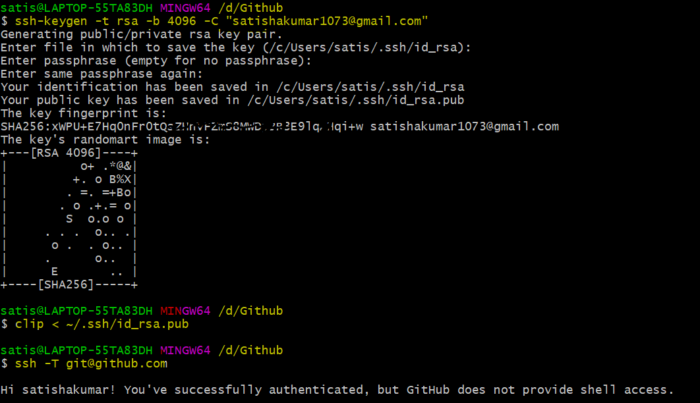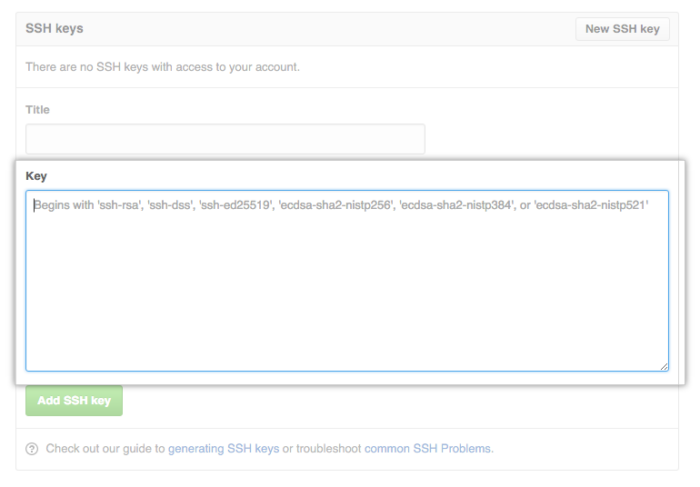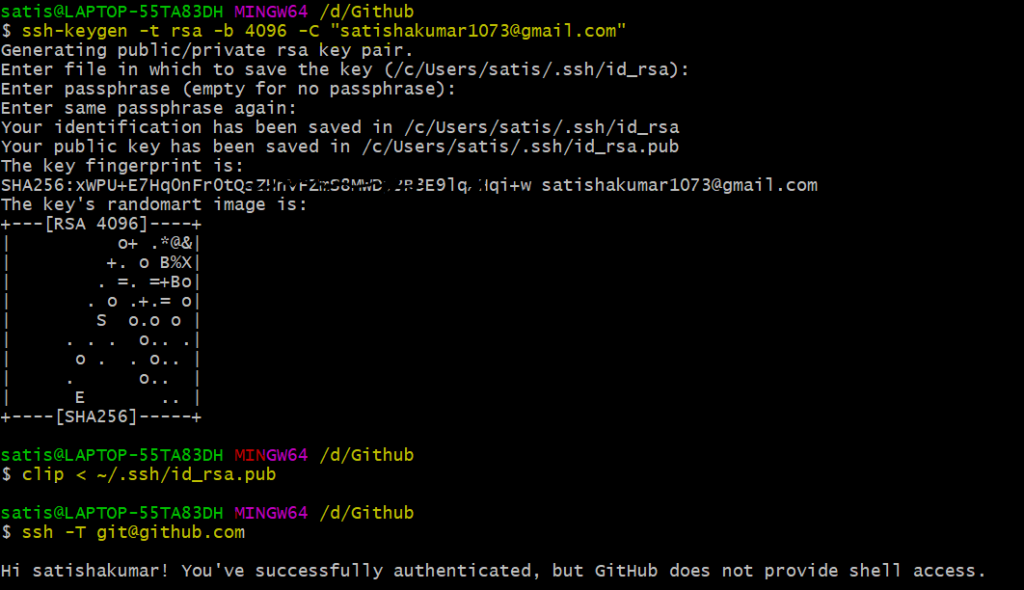[email protected]: permission denied (publickey). This error message can feel like a brick wall halting your progress, especially if you’re a beginner. But, worry no more! This comprehensive guide provides clear, step-by-step solutions to help you overcome this obstacle and get back to your coding routine.
Key Insights
- Public-key authentication error is common while interacting with GitHub.
- This error arises due to a misalignment between your local machine’s SSH keys and the ones registered on GitHub.
- Several solutions exist for this problem, such as generating new SSH keys or using HTTPS URLs instead of git URLs.
- Consistently checking your SSH configuration can prevent this error in the future.
What’s the Optimal Outcome Without the [email protected]: permission denied (publickey) Problem?
The ideal scenario when trying to clone or interact with a repository on GitHub is to do so seamlessly, without encountering any permission errors. This requires proper SSH keys setup on both your local system and GitHub.

Case Study: When Does the [email protected]: permission denied (publickey) Error Happen?
Let’s consider a common scenario – you’re working on a collaborative project, and you need to clone the project repository from GitHub onto your local machine. You run git clone [email protected]:User/Repo.git in your terminal, and boom! You’re hit with [email protected]: permission denied (publickey).

Initial Diagnosis: Have You Tested These Measures?
Before diving into detailed solutions, ensure you’ve checked the following:
- Verify that the repository you’re trying to access does exist.
- Confirm that you have the necessary permissions to interact with the repository.
- Check if your local system and GitHub are correctly set up to use SSH keys.
The Significance of Rectifying [email protected]: permission denied (publickey)
Addressing this issue is crucial for anyone interacting with GitHub repositories. If unresolved, this error can hinder collaboration on projects, delay delivery timelines, and disrupt overall workflow.
Generating a New SSH Key and Adding it to the ssh-agent

If you do not have an SSH key or the existing one is not linked to your GitHub account, you need to generate a new one. Here are the steps:
- Open Terminal (Mac/Linux) or Git Bash (Windows).
- Generate a new SSH key using the command: ssh-keygen -t ed25519 -C “[email protected]”. Replace “[email protected]” with your actual email.
- When asked to “Enter a file in which to save the key,” press Enter to accept the default location.
- At the prompt, type a secure passphrase.
- Start the ssh-agent in the background with the command: eval “$(ssh-agent -s)”.
- Add your SSH private key to the ssh-agent using the command: ssh-add ~/.ssh/id_ed25519.
Final Thoughts
The ‘[email protected]: permission denied (publickey)’ error can be frustrating, but it’s usually relatively straightforward to resolve. By following the steps in this guide, checking your SSH keys, and adjusting your GitHub settings, you should be able to get back to your work in no time.
Remember, it’s important to keep your SSH keys secure and to ensure that they’re correctly configured on both your local machine and your GitHub account. And if all else fails, don’t hesitate to reach out to GitHub support for help. They’re there to assist you, and they have the expertise to resolve even the trickiest of SSH issues.
In the ever-evolving world of technology, errors like these are common. But with the right knowledge and a little patience, they can almost always be resolved. So, don’t get discouraged if you encounter a hurdle. Instead, use it as an opportunity to learn and grow in your understanding of the technology you’re using.
FAQs
Why am I getting a ‘permission denied (publickey)’ error when trying to access my GitHub repository?
This error typically occurs when the SSH key you’re using isn’t linked to your GitHub account, or when the SSH key isn’t configured correctly on your local machine. It could also happen if you’re trying to access a repository that doesn’t exist or you don’t have the necessary permissions for.
How can I check if my SSH key is connected to my GitHub account?
You can check this by navigating to your GitHub account settings, clicking on ‘SSH and GPG keys’, and seeing if your SSH key is listed there. If it’s not, you’ll need to add it.
How do I generate a new SSH key?
You can generate a new SSH key by using the ‘ssh-keygen’ command in your terminal. You’ll need to specify a file in which to save the key, and you can also add a passphrase for extra security.
What’s the difference between using HTTPS and SSH when interacting with GitHub?
HTTPS and SSH are both methods of securely communicating with GitHub. HTTPS is easier to set up and works from almost anywhere, but requires you to enter your GitHub credentials every time you connect. SSH, on the other hand, requires more setup and may not work in certain network environments, but allows for secure password-less connections once set up.
Can I use both HTTPS and SSH with GitHub?
Yes, you can use both HTTPS and SSH with GitHub. You can even use both on the same machine, although you’ll need to update your remote repository URLs to switch between the two.
I’ve followed all the steps, but I’m still getting the ‘permission denied (publickey)’ error. What do I do?
If you’re still getting the error after following all the steps, it may be worth reaching out to GitHub support for further assistance. They can help diagnose the issue and guide you through any additional steps that may be required.

